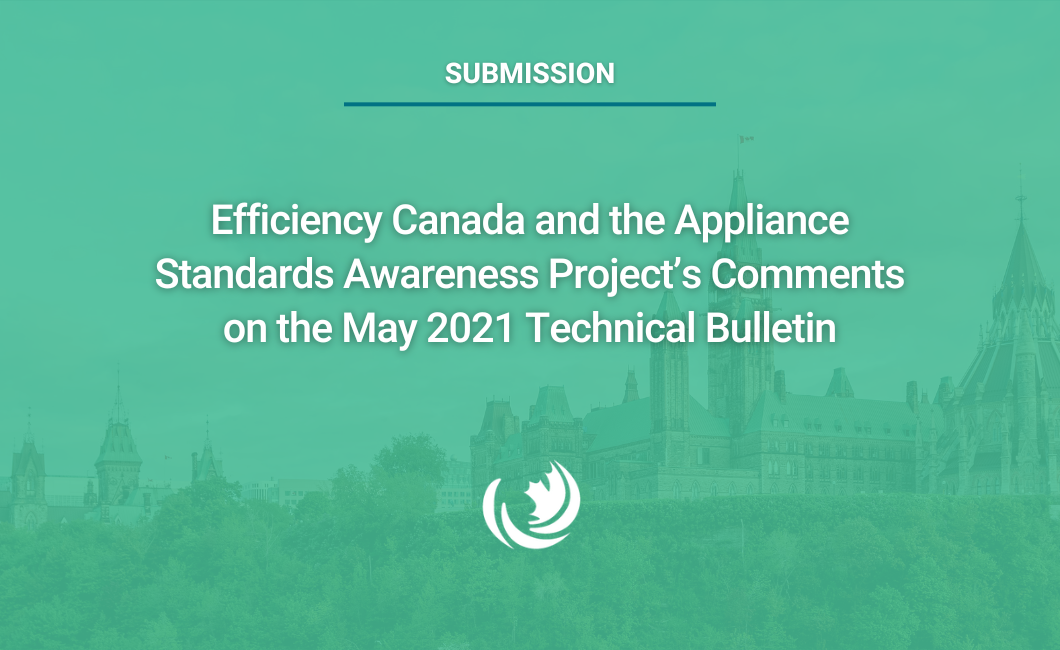
This letter constitutes the comments of Efficiency Canada and the Appliance Standards Awareness Project (ASAP) on the Natural Resources Canada (NRCan) May 2021 technical bulletin on amending the standards for appliances.
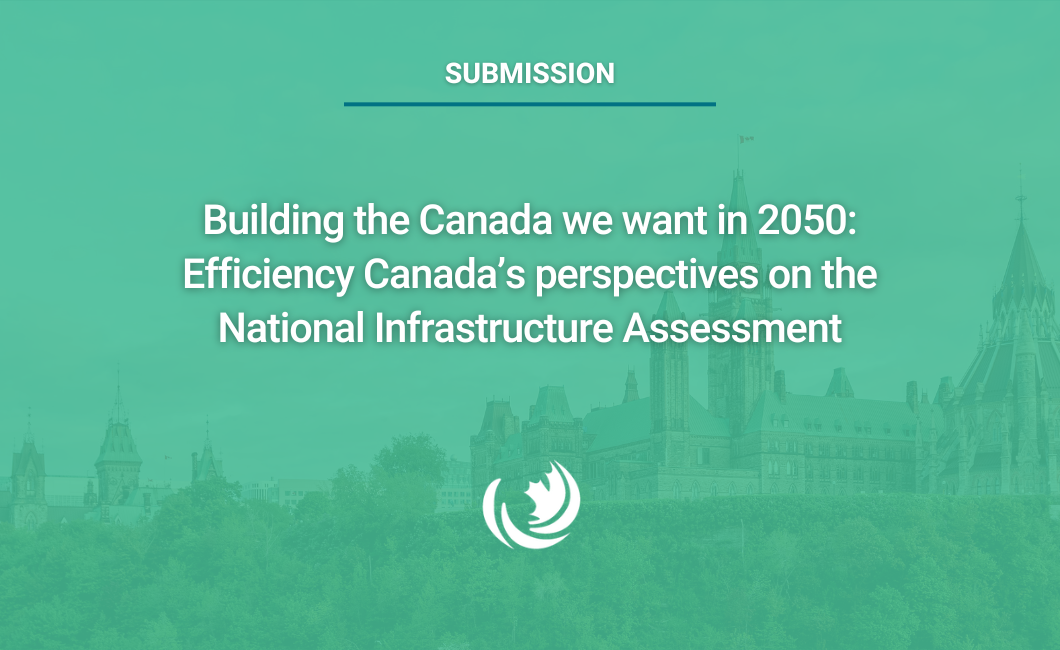
We welcome the opportunity to provide our thoughts and perspectives on the priorities laid out in Building the Canada We Want in 2050 Engagement Paper on the National Infrastructure Assessment. The Canada we want in 2050, with more inclusive and livable communities that offer affordable housing for all Canadians, can be achieved via wide-scale retrofits and net-zero new builds constructed with low and zero carbon building materials.
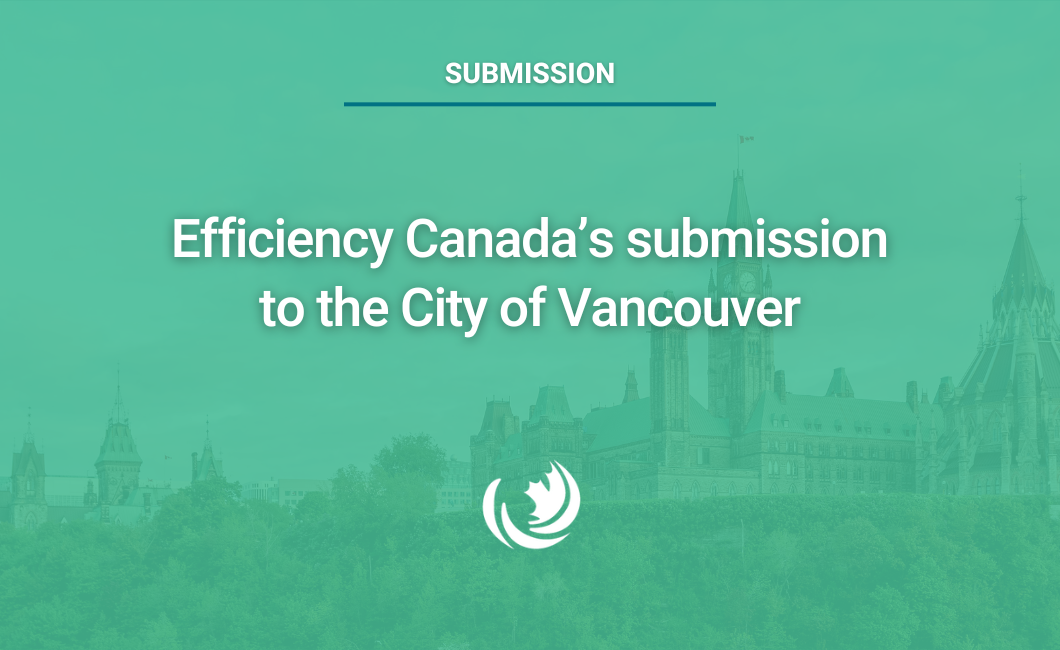
We are writing to ask you to approve recommendation A, B, and C in the report, which will help reduce building permit delays, and vote down recommendation D which proposes a one-year delay in implementing the city’s Climate Emergency Action Plan requirement that new homes be built with zero emissions heating and hot water requirements.
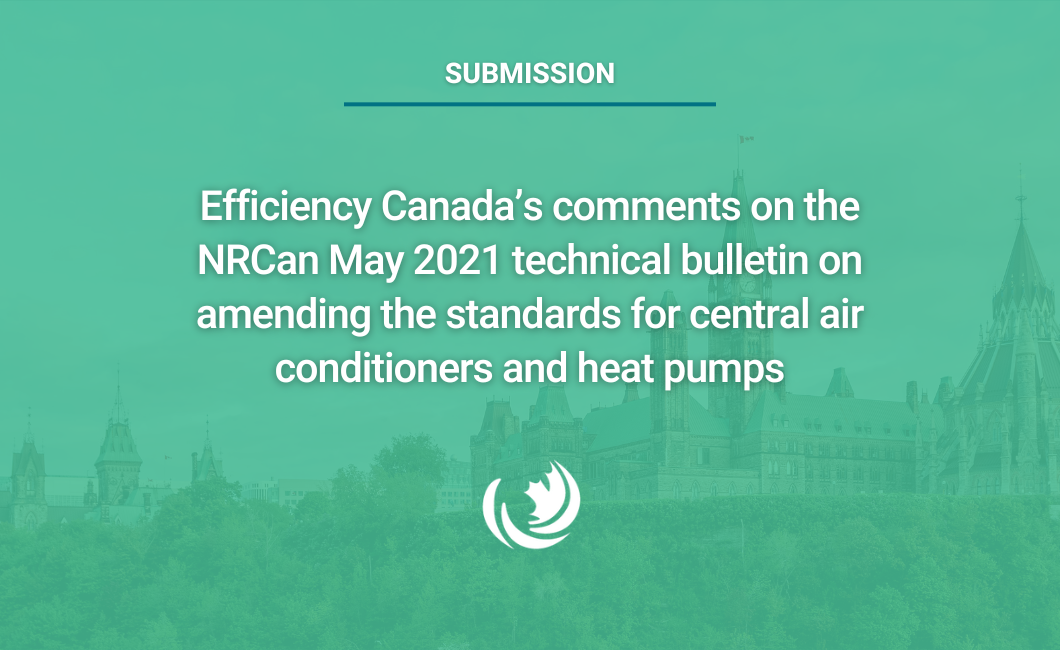
This letter constitutes the comments of the Appliance Standards Awareness Project (ASAP) and Efficiency Canada on the Natural Resources Canada (NRCan) May 2021 technical bulletin on amending the standards for central air conditioners and heat pumps.
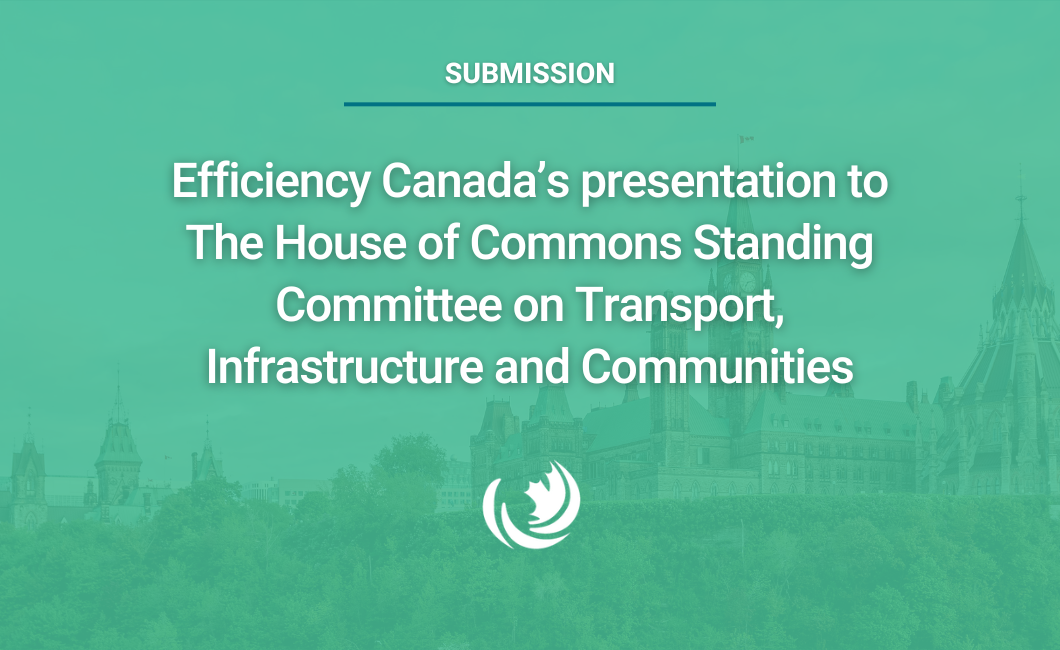
We usually think about energy efficiency on a building-by-building basis and leave the financing and project management of retrofits up to a building owner. In a net-zero economy we are concerned with the large-scale, aggregate impacts of improving energy efficiency. Authored by Brendan Haley.

We are writing to encourage you to clearly mandate Canada’s national model codes development community to develop a highly energy efficient and zero-carbon, outcomes-based model building code as a way to reduce energy waste and emissions associated with energy use in new buildings. Authored by Corey Diamond and Chris Ballard.







